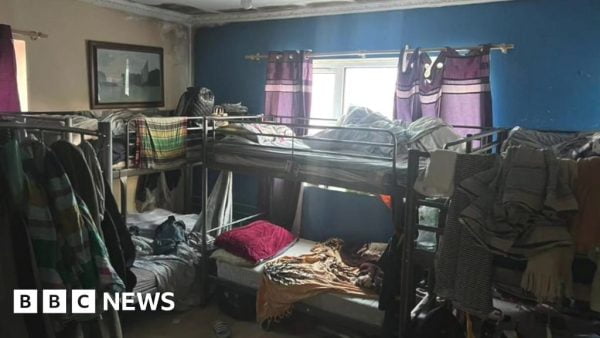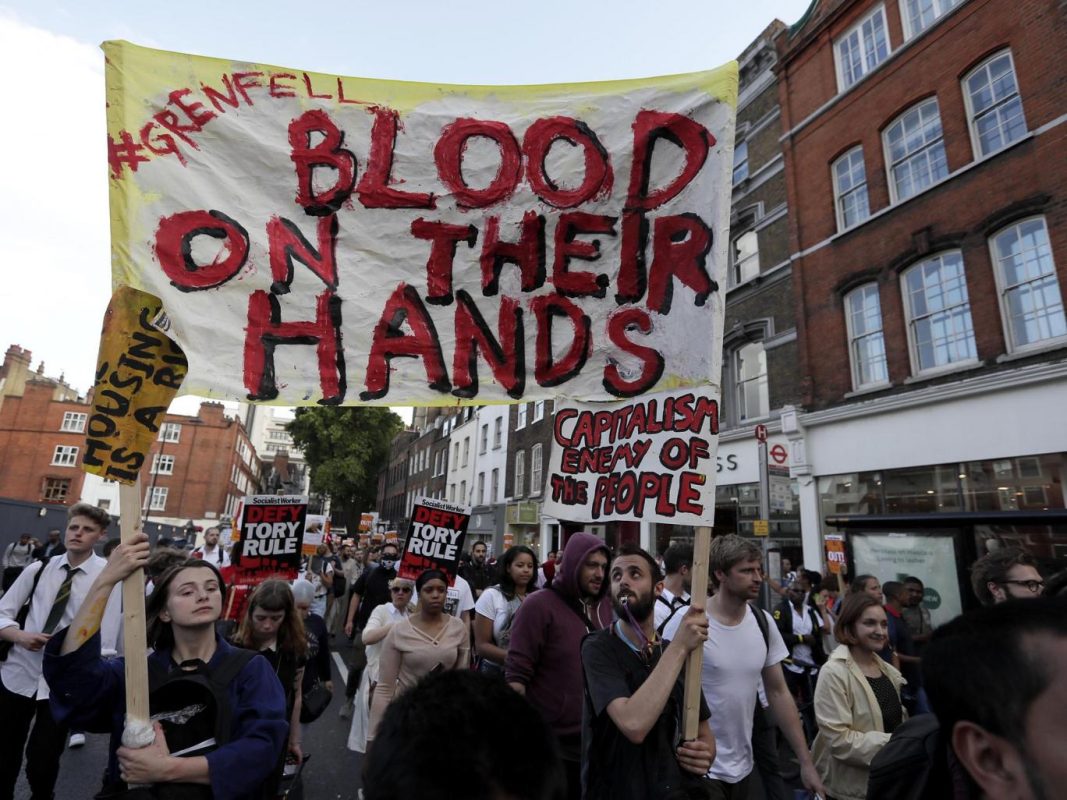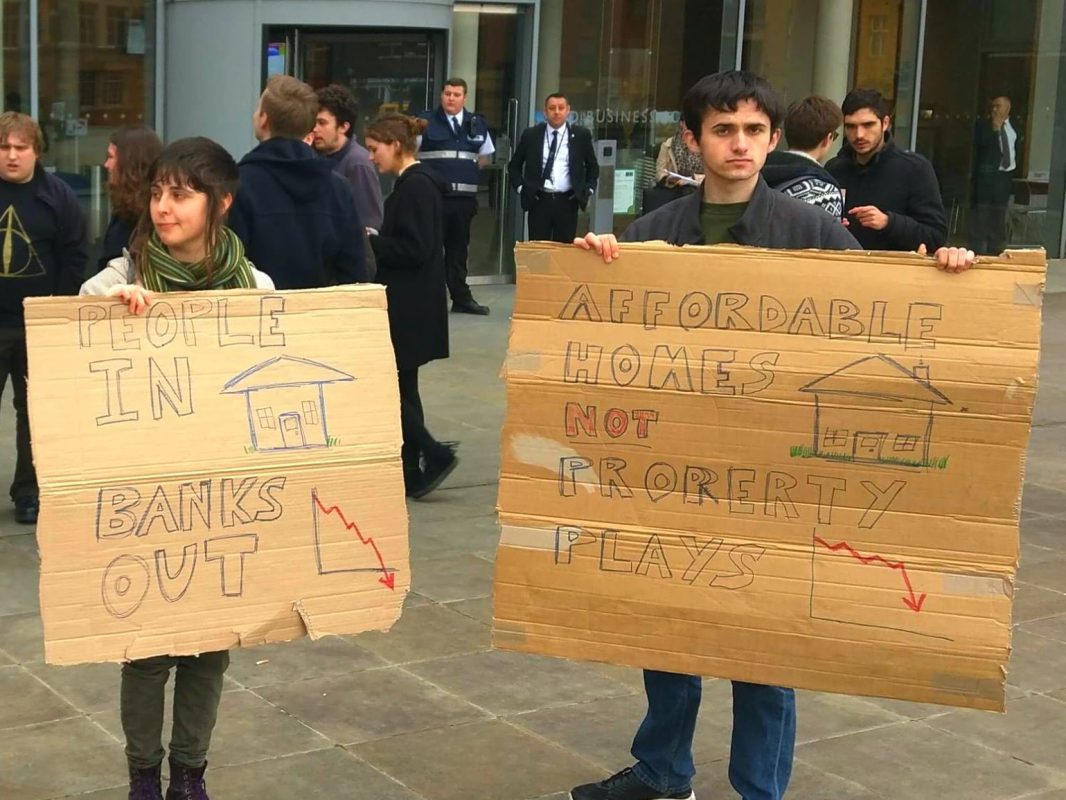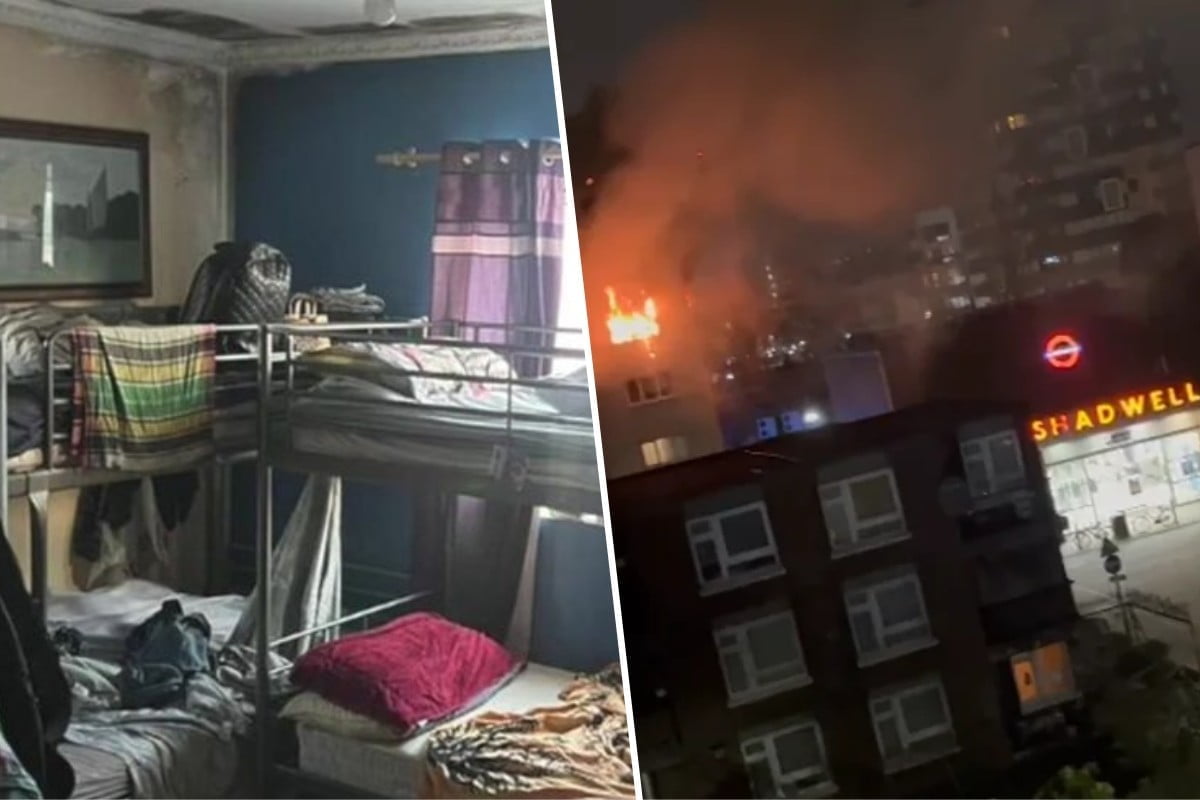The ruling class likes to pretend that they’ve created a modern, sophisticated way of life for society, talking about the hordes of wealth that capitalism generates. And to be sure, hordes of wealth are generated. But for whom?
Right next to Shadwell station in Tower Hamlets, London, sits the blackened husk of a flat that burned down on the night of 5 March.
Up to 18 people were reportedly living in this three-room flat. They slept on the floors and in the kitchen, while some were lucky enough to sleep on cramped bunk beds.
Amazingly, all but one of the unfortunate souls residing in this abode managed to make it out alive. Mizanul Rahman, however, a 41-year-old man who had just arrived in the UK weeks earlier, died from the injuries he sustained in the accident.

Reports suggest that the fire was caused by a faulty electric bike battery. Many of the inhabitants of this flat, and others like it, are forced to work as drivers for Deliveroo and similar ‘gig economy’ apps – one of the only forms of employment they can get.
This kind of slum housing is not unusual in London. The landlords and managing agents who openly advertise these squalid properties online have no shame. They upload pictures of these houses – rammed with bunk beds, piles of clothes, and electric bikes – and scandalously write in the description: “Great investment opportunity, in need of some refurbishment.”
Class divide
Reportedly, criminal charges are being brought against the landlord of this particular flat. But whether anything comes of this specific case is beside the point. No amount of targeting so-called ‘rogue landlords’ will fix this issue, nor the wider housing crisis.
In Tower Hamlets, 1500 properties sit empty. This rises to more than 30,000 across London as a whole. And how many more are technically available on the market, but are so expensive as to price all but the wealthiest from living in them?
The blame for tragedies like this doesn’t just lie at the feet of callous landlords. As the Grenfell tragedy demonstrated, property developers, cladding manufacturers, and their paid-for politicians will always prioritise profits over safety.

As with the Shadwell fire, criminal charges are being brought against individuals responsible for the Grenfell disaster. But the trial isn’t set to start until 2025 – over seven years after the building burned down.
Asides from being too little, too late, individual prosecutions do not solve the underlying problem. Since Grenfell, only 7% of dangerous homes have been made safe to live in. The capitalist system incentivises this criminal, neglectful behaviour.
Barely a mile away from where this Shadwell flat burned down stands the fortress of UK finance: Canary Wharf. Many of the banks who have made the headlines recently are headquartered here.
How many of these banks will be receiving generous government bailouts and state support in the coming months and years? And how much will ordinary Tower Hamlets residents get? Who will the money go to? We all know the answer.
People like the late Mr. Rahman, meanwhile, will continue to deliver lunch to these bankers in Canary Wharf – those who really benefit from this rotten system.
Housing crisis
This sad state of affairs did not come about by accident. We did not stumble into it. This housing crisis is the culmination of the policies of successive governments, spanning decades.
In the post-war period, hundreds of thousands of homes were built in Britain. A large proportion of these were council-owned. Today, by contrast, house construction in the UK is set to fall to its lowest level in decades – barely half of the government’s target of 300k houses per year by the mid-2020s.
In the late 1970s, over 40% of people in Britain lived in council housing. Now less than 10% do. These figures represent a massive transfer of wealth from the public sector to the capitalists.
Again, this is not an accident, but is the natural outcome of a system driven by profit and competition, with policies like the ‘right to buy’ scheme, stamp duty cuts, and cheap credit introduced by the government and local councils, as a huge handout to private developers.
Socialist solution
Apologists for the capitalist market have suggested that the solution is to remove even more of the ‘barriers’ – i.e. regulations put in place to protect tenants, homeowners, and the environment – that stand in the way of property developers. According to them, this is the real reason why more housing isn’t being built.

Such ‘solutions’, proposed by conservatives and reformists alike, are a complete red herring. At best, this would simply amount to plastering over the cracks.
It is not safety or environmental regulations that are preventing the mass construction of decent, affordable housing, but the profit motive.
To genuinely solve the housing crisis, what is needed is a clear socialist programme. This should include: expropriating the big landlords, banks, and property developers; reclaiming the thousands of vacant properties that are currently used as vehicles for speculation, and distributing these homes to those who need them; and bringing all land and large management companies under public ownership and democratic control, to be used for the common good.
On this basis, millions of high-quality houses could be rapidly built – putting an end to the scourge of slum housing, and providing safe, comfortable, and affordable shelter for all.






